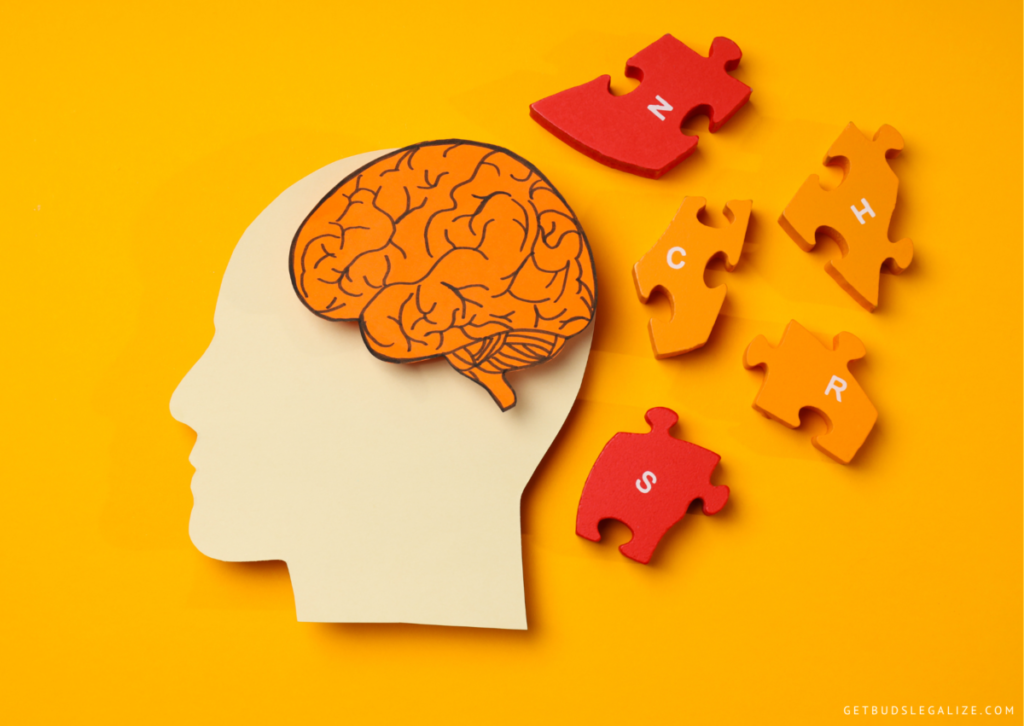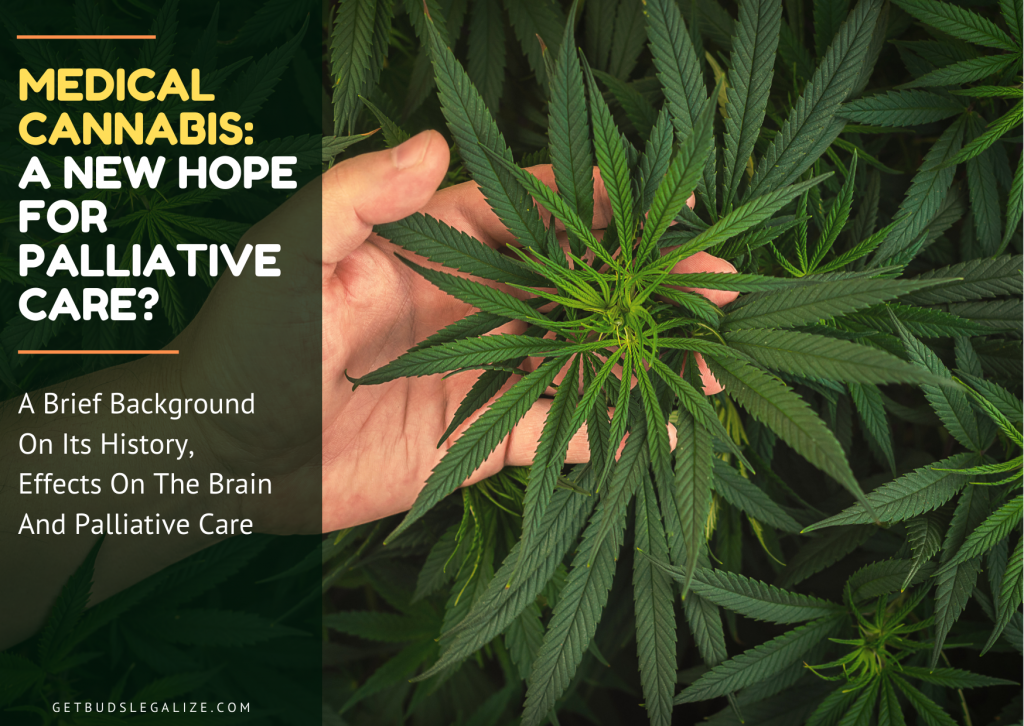CBD and Alzheimer's Disease: Everything You Need to Know About
Alzheimer’s is an irreversible and progressive brain disease that affects memory, cognition, and behavior. It is the most common cause of dementia, accounting for 60-80% of all cases, usually affecting people over the age of 65 but can also occur in younger individuals. In this blog post, we’ll explore its symptoms, causes, and how CBD and Alzheimer’s disease interact in the brain as a possible cure.
What Are The Causes of Alzheimer's?
The exact cause of Alzheimer’s is not fully understood, but it is believed to involve a combination of genetic, environmental, and lifestyle factors. Some of the risk factors attributable to developing this disease include:
- Age: The risk of Alzheimer’s increases with age, especially after 65 years old.
- Family history: Having a parent or sibling with Alzheimer’s increases the likelihood of developing the condition.
- Head injuries: Traumatic brain injuries can damage the brain and increase the risk of Alzheimer’s disease.
- Cardiovascular disease: Conditions that affect the heart and blood vessels, such as high blood pressure, high cholesterol, diabetes, and stroke, can impair blood flow to the brain and contribute to Alzheimer’s disease.
- Infections: Some viral or bacterial infections may trigger an inflammatory response in the brain that can lead to Alzheimer’s disease.
- Environmental contaminants: Exposure to certain toxins, such as pesticides, metals, or air pollution, may damage the brain and increase the risk of Alzheimer’s disease.
One of the main features of Alzheimer’s is the accumulation of abnormal protein deposits called amyloid plaques and neurofibrillary tangles in the brain. These proteins interfere with the communication and function of nerve cells, leading to cell death and brain atrophy. The loss of brain tissue affects different regions of the brain responsible for memory, language, reasoning, and behavior.
What Are The Symptoms of Alzheimer's?

The symptoms of Alzheimer’s vary depending on the stage and severity of the condition. The most common include:
- Memory loss: Forgetting recent events, names, dates, or places is one of the earliest signs of Alzheimer’s. As the condition progresses, memory loss becomes more severe and affects long-term memories as well.
- Language difficulties: Having trouble finding the right words, following or joining a conversation, or understanding what others are saying is another common symptom of Alzheimer’s.
- Disorientation: Getting lost in familiar places, losing track of time or dates, or confusing reality with imagination are signs of disorientation caused by Alzheimer’s.
- Impaired judgment: Making poor decisions, neglecting personal hygiene or safety, or acting inappropriately are examples of impaired judgment that can occur in people with Alzheimer’s.
- Mood and personality changes: Experiencing mood swings, depression, anxiety, irritability, aggression, or apathy are some of the emotional and behavioral changes that can affect people with Alzheimer’s.
- Difficulty performing daily tasks: Having trouble with planning, organizing, cooking, driving, or managing finances are some of the difficulties that people with Alzheimer’s may face in their daily activities.
As Alzheimer’s advances, more severe symptoms may appear, such as:
- Hallucinations: Seeing or hearing things that are not there
- Delusions: Having false beliefs or suspicions
- Paranoia: Feeling threatened or persecuted by others
- Agitation: Becoming restless or agitated
- Wandering: Leaving home or getting lost
- Incontinence: Losing control of bladder or bowel functions
- Difficulty swallowing: Having trouble eating or drinking
- Weight loss: Losing weight due to reduced appetite or difficulty eating
- Seizures: Having convulsions or spasms
- Infections: Developing infections such as pneumonia or urinary tract infections
In the final stage of Alzheimer’s, people become bedridden and dependent on others for care. They may lose their ability to speak, recognize their loved ones, or respond to their environment. Eventually, they die from complications such as infections or organ failure.
What Is CBD and How Does It Interact with The Brain?
CBD or cannabidiol is one of many compounds found in the cannabis plant, and unlike THC (tetrahydrocannabinol), which is the main psychoactive component of cannabis that causes a “high”, it has no intoxicating effect.
CBD has been shown to have various therapeutic properties, such as anti-inflammatory, antioxidant, anticonvulsant, anti-anxiety, antidepressant, neuroprotective, and analgesic effects.
CBD works by interacting with different receptors and molecules in the brain and body that are part of the endocannabinoid system (ECS). The ECS is a complex network of signaling molecules and receptors that regulate various physiological and cognitive processes, such as pain, mood, memory, appetite, sleep, immune function, and neurogenesis. The ECS is also involved in the response to stress, inflammation, and neurodegeneration.
CBD can modulate the activity of the ECS by binding to or influencing the function of different receptors and enzymes that are involved in the synthesis, degradation, or transport of endocannabinoids (the natural cannabinoids produced by the body).
CBD can also interact with other neurotransmitter systems, such as serotonin, dopamine, glutamate, and GABA, that are implicated in various neurological disorders.
How Does CBD Interact with Alzheimer's?

CBD may have potential benefits for people with Alzheimer’s by targeting different aspects of the condition. Some of the possible mechanisms of action in which CBD and Alzheimer’s disease interact include:
• Reducing Amyloid Plaque Formation:
CBD may inhibit the enzyme that is responsible for producing amyloid beta, the main component of amyloid plaques.
CBD may also enhance the clearance of amyloid beta from the brain by activating microglia (the immune cells of the brain) or stimulating autophagy (the process of cellular self-digestion).
• Reducing Neuroinflammation:
CBD may reduce the production of pro-inflammatory cytokines (chemical messengers) and reactive oxygen species (free radicals) that are involved in the inflammatory response in Alzheimer’s disease.
CBD may also suppress the activation of microglia and astrocytes (the supportive cells of the brain) that contribute to neuroinflammation and neurodegeneration.
• Protecting Neurons from Damage:
CBD may protect neurons from oxidative stress, excitotoxicity, apoptosis (programmed cell death), and mitochondrial dysfunction (impaired energy production) that are caused by amyloid beta or other factors in Alzheimer’s disease.
CBD may also promote neurogenesis (the formation of new neurons) and synaptic plasticity (the ability of neurons to form new connections) in the hippocampus (the brain region responsible for memory and learning).
• Improving Cognition and Behavior:
CBD improves cognition function and behavior in people with Alzheimer’s by enhancing neurotransmission, modulating mood, reducing anxiety, and improving sleep quality.
CBD may also have antipsychotic effects that can help reduce hallucinations, delusions, paranoia, and agitation.
What Is The Evidence of The Effectiveness of CBD in Alzheimer's?

The Evidence is still limited and is based mostly on animal studies or preclinical models. However, some studies have shown promising results suggesting that CBD may have beneficial effects. Some examples of these studies are:
- A 2011 study found that CBD reduced amyloid beta-induced neuroinflammation and oxidative stress in animal models of Alzheimer’s.
- A 2014 study found that CBD enhanced cognition and reduced social withdrawal in a mouse model of Alzheimer’s.
- A 2016 study found that CBD reversed cognitive deficits and reduced amyloid beta levels in a rat model of Alzheimer’s.
- A 2017 study found that CBD improved learning and memory in a mouse model of Alzheimer’s.
- A 2019 study found that CBD reduced neuroinflammation and improved spatial memory in a mouse model of Alzheimer’s.
- A 2020 study found that CBD increased levels of proteins that are involved in removing amyloid beta from the brain in a cell model of Alzheimer’s.
- A 2021 study found that high doses of CBD improved cognition and increased levels of proteins that are involved in removing amyloid beta from the brain in a mouse model of early-onset familial Alzheimer’s.
There are very few clinical trials that have tested CBD in people with Alzheimer’s disease or dementia. However, some preliminary studies have shown some positive effects of CBD on behavioral symptoms or quality of life. Some examples of these studies are:
- A 2016 case report described a woman with Alzheimer’s who showed improvement in agitation, aggression, apathy, and sleep quality after taking oral CBD oil for 4 weeks.
- A 2019 pilot study evaluated the safety and efficacy of oral CBD oil in 10 patients with dementia who had severe behavioral problems. The results showed that CBD oil was well tolerated and reduced agitation, aggression, irritability, apathy, delusions, and sleep problems after 2 weeks.
- A 2020 randomized controlled trial assessed the effects of oral CBD oil on the quality of life and well-being of 120 patients with dementia. The results showed that CBD oil was safe and improved quality of life and well-being after 12 weeks.
What Are the Challenges and Limitations of CBD in Alzheimer's?
Despite the promising evidence for CBD in Alzheimer’s, there are still many challenges and limitations that need to be addressed before CBD can be considered as a potential treatment for this condition. Some of these challenges and limitations include:
- The quality and consistency of CBD products vary widely, which may affect their safety and effectiveness for Alzheimer’s. More research is needed to establish standardized dosing guidelines and quality control measures for CBD products.
- The long-term effects of CBD on brain health and function are unknown. CBD may have beneficial or adverse interactions with other medications that people with Alzheimer’s may be taking. It is important to consult with a doctor before using CBD for any medical condition.
- The legal status of CBD is unclear and may differ depending on the state or country. Some CBD products may contain traces of THC, which is illegal in some places and may cause psychoactive effects or positive drug tests. People who use CBD should be aware of the potential legal risks and consequences.
Bottom Line
CBD may have some positive effects on some of the symptoms and mechanisms of Alzheimer’s and other types of dementia, such as reducing beta-amyloid plaque, improving cognition, reducing inflammation, and reducing agitation and aggression. However, more research is needed to establish the optimal dosage, safety, and efficacy of CBD in this disease in humans. Therefore, people interested in using CBD should consult their doctor before starting any treatment.
FAQs about CBD and Alzheimer's Disease
CBD is a compound derived from the cannabis plant that has been shown to have some potential benefits for Alzheimer’s disease. According to some studies, CBD can help reduce inflammation, plaque buildup, and cognitive impairment caused by disease. However, more research is needed to confirm efficacy and safety.
The dosage of CBD for Alzheimer’s may vary depending on the product, the severity of the symptoms, and the individual’s response. There is no official recommendation for the correct dosage. However, some experts suggest starting with a low dose of 5-10 mg per day and gradually increasing it until the desired effects are achieved.
CBD is generally well-tolerated and considered safe by most people. However, CBD can interact with some medications or cause some side effects, such as drowsiness, dry mouth, diarrhea, or changes in appetite. Therefore, it is advisable to consult a doctor before using CBD for any other condition.
CBD is legal in most states in the U.S., as long as it contains less than 0.3% THC, which is the psychoactive component of cannabis. However, the legal status of CBD may vary depending on state laws and regulations. Therefore, it is important to check the local laws before buying or using CBD products.
CBD products are derived from cannabis plants and contain cannabidiol, a compound that may have some benefits for people with Alzheimer’s. Some of the best CBD products you can use are:
- CBD oil: This is a liquid extract that can be taken orally or applied under the tongue. CBD oil may help reduce inflammation, improve mood, and protect brain cells from damage.
- CBD capsules: These are soft gel capsules that contain a measured dose of CBD. CBD capsules may be easier to swallow and digest than CBD oil, and they may also have longer-lasting effects.
- CBD gummies: These are chewable candies that contain CBD and other ingredients, such as sugar, gelatin, and natural flavors. CBD gummies may be more appealing and convenient for some people, especially those who have trouble swallowing pills or dislike the taste of CBD oil.
- CBD cream: This is a topical product that can be applied to the skin. CBD cream may help relieve pain, inflammation, and skin irritation caused by Alzheimer’s or its treatments.
CBD is a compound derived from cannabis plants that have been shown to have some beneficial effects on certain neurological conditions. It may have some anti-inflammatory and antioxidant properties, but it is unclear how these would affect the underlying causes of Alzheimer’s or its symptoms.
Therefore, CBD should not be considered as a treatment or prevention for Alzheimer’s disease, and more research is needed to understand its potential benefits and risks.

















